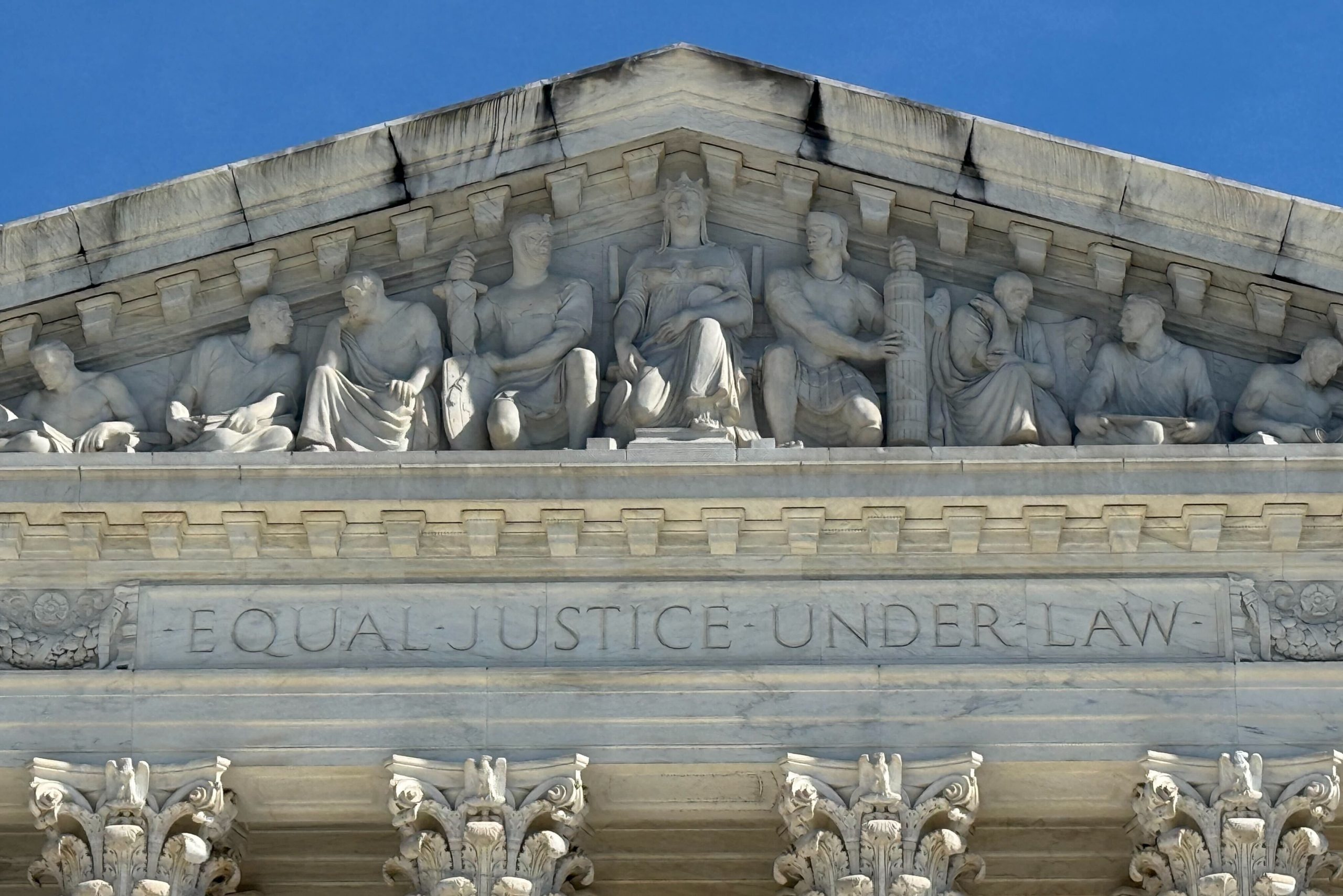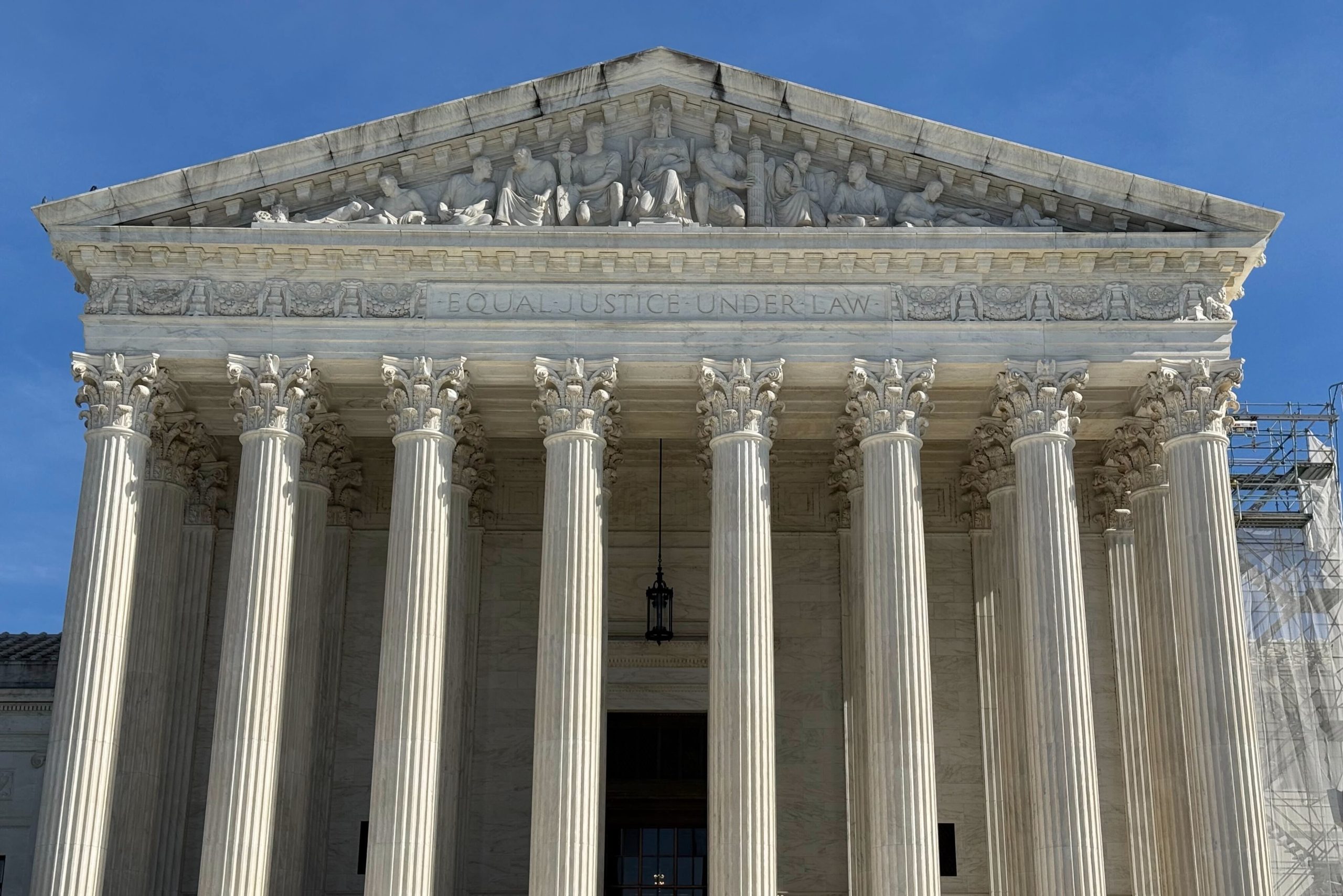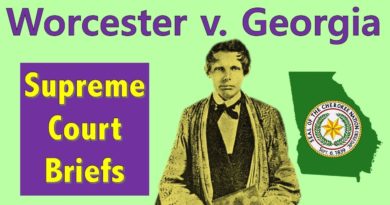Supreme Court orders non-citizens in Texas to challenge their detention and removal
EMERGENCY DOCKET
at 8:30 pm
The Trump Administration appealed the court in Trump V. J.G.G. (Katie Barlow)
The Supreme Court on Monday lifted two orders by a federal judge in Washington, D.C. that had barred the government from removing noncitizens who are designated as members of a Venezuelan gang under a March 15 executive order issued by President Donald Trump. The court explained that the challengers must file their lawsuit in Texas, where they are being held, rather than in Washington, D.C. Instead, the challengers’ lawsuit must be brought in Texas, where they are being held, rather than in Washington, D.C., the court explained.
The unsigned four-page opinion emphasized that although courts have a limited role in reviewing claims under that law, the plaintiffs and others detained under the law are entitled to “notice and an opportunity to challenge their removal.”
Justice Sonia Sotomayor penned a 17-page dissent joined in full by Justices Elena Kagan and Ketanji Brown Jackson and in part by Justice Amy Coney Barrett. She contended that her colleagues’ “decision to intervene in this litigation is as inexplicable as it is dangerous.”
Jackson wrote her own two-page dissent in which she lamented that the majority’s “fly-by-night approach to the work of the Supreme Court is not only misguided. It is also dangerous.”
The 1798 law at the center of the case is the Alien Enemies Act, which allows the president to detain or deport citizens of an enemy nation without a hearing or any other review by a court if either of two things occurs: Congress declares war, or there is an “invasion” or “predatory incursion.” The law has been invoked only three times – during the War of 1812, World War I, and World War II.
Trump’s executive order focuses on a large Venezuelan gang named Tren de Aragua, which began in Venezuela’s prisons and then spread into other parts of Latin America and, eventually, the United States. In February, Secretary of State Marco Rubio designated it as a “foreign terrorist organization.”
Trump found in his order that TdA “is perpetrating, attempting, and threatening an invasion or predatory incursion against the territory of the United States.” Therefore, he concluded, “all Venezuelan citizens 14 years of age or older who are members of TdA are liable to be apprehended, restrained, secured, and removed as Alien Enemies.”
Even before Trump issued the order, a group of Venezuelan nationals in immigration custody went to federal court in Washington. They said they feared being removed and challenged Trump’s use of the Alien Enemies Act. District Judge James Boasberg immediately prohibited the federal government to remove any of the plaintiffs for a period of 14 days. Boasberg issued a separate order later that day to prohibit the government from removing any other aliens under the Alien Enemies Act. Boasberg ordered that any noncitizens who had already left the United States to return home be removed from the planes. The five plaintiffs are still being held in immigration detention. News reports indicate that Boasberg’s written order led to the removal of more than 200 noncitizens from the United States. Their planes landed in El Salvador on March 15 after Boasberg had issued it. Rubio reposted a video that Nayib Bukele, the president of El Salvador, had posted on social media. The caption of the clip read: “Ooopsie… Too late.” The D.C. The Supreme Court heard a case on March 28 in which Sarah Harris, the then acting U.S. Solicitor General, asked the justices to let the Trump administration enforce the March 15, 2017 order. The dispute, she contended, “presents fundamental questions about who decides how to conduct sensitive national-security operations in this country – the President … or the Judiciary.” Harris told the justices that the “Constitution supplies a clear answer: the President.”
Lawyers for the Venezuelan nationals urged the court to leave Boasberg’s order in place. They pointed out that “many” (or perhaps most) of those sent to the El Salvadoran jail in March “were actually not members of” TdA. They said that Boasberg’s order is “essential” to prevent more individuals with no affiliation to the gang from being sent to a notorious prison abroad. Instead, the majority explained, because the relief that they are seeking “necessarily” suggests that their confinement in immigration custody and removal under the AEA is invalid, they must bring their claims as habeas corpus claims – that is, a challenge to the legality of their detention.
The only place that such claims can be brought, the majority continued, is the judicial district where a prisoner is being detained. Because the plaintiffs in this case are now in Texas, rather than in Washington, D.C., the majority concluded, their case cannot be brought in Washington.
The court made clear that – as the government agrees – the plaintiffs, as well as others who may be detained or removed under the AEA, are entitled to be notified “that they are subject to removal under the Act.” Moreover, the court added, addressing an argument made by lawyers for the plaintiffs during oral arguments in the lower courts, the government must provide that notice “within a reasonable time and in such a manner as will allow them to actually seek habeas relief in the proper venue before such removal occurs.”
Kavanaugh wrote a brief concurring opinion in which he emphasized that “the Court’s disagreement is not over whether the detainees receive judicial review of their transfers–all nine Members of the Court agree that judicial review is available. The only question,” he concluded “is where that judicial review should occur.”
Sotomayor called the court’s conclusions “suspect.” She wrote that the removal of noncitizens to the prison in El Salvador “presented a risk of extraordinary harm to these” plaintiffs. Referring to the case (also pending at the Supreme Court) of a Maryland man whom the government admits was sent to El Salvador as a result of an administrative error, she observed that the government has contended that “even when it makes a mistake, it cannot retrieve individuals from” the prison in El Salvador.
“The implications of the Government’s position,” Sotomayor stressed, “is that not only noncitizens but also United States citizens could be taken off the streets, forced onto planes, and confined to foreign prisons with no opportunity for redress if judicial review is denied unlawfully before removal. History is no stranger to such lawless regimes, but this Nation’s system of laws is designed to prevent, not enable, their rise.”
Sotomayor concluded by calling the majority’s decision on Monday “indefensible.” “We, as a Nation and a court of law, should be better than this,” she wrote.
In her separate dissent, Jackson explained that she agreed with Sotomayor but also wrote a separate dissent in which she questioned the majority’s decision to step into the dispute now, immediately before Boasberg had scheduled a hearing on the plaintiffs’ request for a preliminary injunction.
Jackson criticized the majority for addressing these issues on their emergency docket and reaching a “rushed conclusion.” Normally, she said, when the justices weigh in on “complex and monumental issues,” they give the lower courts an opportunity to “address those matters first.” Then, she continued, the court “receives full briefing, hears oral argument, deliberates internally, and, finally, issues a reasoned opinion.” When the court departs from that normal practice, she said, “the risk of error always substantially increases” and it does so without “a record so posterity
see how it went wrong.”
This article was originally published at Howe on the Court.






